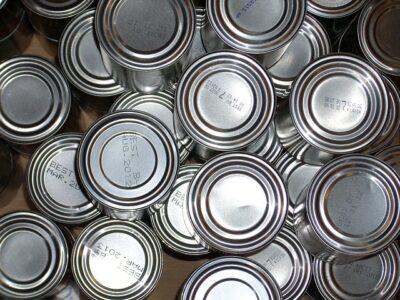As we near the end of summer, you might have canning and long-term food storage on your mind. If you are building up your food supplies for an emergency situation, you want to make the most of your resources and your space.
However, it pays to be picky when it comes to what you store on your survival pantry shelves. In fact, there are some foods that you shouldn’t stockpile. Here is our top seven list of foods you never should stockpile:
Instead, look for sales on non-perishable items that you enjoy eating. It will make things a lot easier during an already stressful time for your family.
1. Flour. You can store all-purpose white flour at room temperature for only about six to eight months. After that period, flour can develop a particularly unpleasant smell, and flour weevils may hatch and grow. For better long-term storage, stock up on wheat instead of flour.
2. Brown rice. With its naturally high oil content, brown rice stays fresh for less than six months on your pantry shelf. For long-term storage, place white rice in airtight containers.
This Is The World’s Healthiest Storable Survival Food! [2]
Adding a few oxygen absorbers (small, food-safe packets that contain an iron powder) can help keep your white rice fresh.
3. Saltine crackers. If you have ever smelled saltines that have been stored for more than six months, you probably learned this lesson the hard way. Stale saltines can create quite a stench. Rotate through your saltines every few months and store them in airtight containers with oxygen absorbers for best results.
4. Breakfast cereal. For best taste, store cereals in airtight containers and rotate through them every six to eight months. A better – and usually healthier — long-term choice is to store rolled oats in your survival pantry. You can prepare hot breakfast cereal as well as other dishes with rolled oats, and when stored in dark airtight containers with oxygen absorbers, they can last for years.
5. Brown sugar. Brown sugar does not spoil easily, but it does get rock hard. Instead of storing brown sugar, store white sugar and molasses. Then you can create your own fresh brown sugar by combining one tablespoon of molasses with one cup of white sugar.
6. Canned tomato products. Canned tomato sauce, tomato paste and tomatoes tend to leak, bulge or separate along a seam during long-term storage. Be sure to rotate through your tomato products regularly to avoid this problem.
7. Foods you don’t normally eat. This sounds like a no-brainer, but many people are seduced by sale prices on canned and packaged goods. It doesn’t matter if you got a rock-bottom price on all those cans of spinach. If you and your family don’t eat canned spinach on a regular basis, you probably won’t want to eat it in an emergency, either. You will have wasted money and precious storage space.
As a general rule, it is best not to store your food items in their original store packaging. For long-term storage, transfer your goods to airtight containers. That way, they will be better protected from humidity, rodents and insects.
It is a good idea to do a monthly stockpile review. Check for expiration dates and inspect containers for any signs of damage from moisture, temperature, insects or rodents. Keeping your stockpile in a good, ready-to-eat state will save you valuable storage space and will help you make sure you have what you need if and when you need it.
What would you add to this list? Share your ideas in the section below:
Do You Stockpile? Discover The Trick To Saving Thousands At The Grocery. Read More Here. [3]

